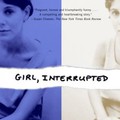Zoë Heller: Notes on a Scandal
 I saw the movie version of this novel a couple of years ago but all I remembered was that I liked it, but couldn’t really recall the story. But when I started reading the book, the images of the film and the details of the plot suddenly resurfaced in my mind, so I almost felt as if I was reading the novel for the second time. And I was glad I remembered a lot of details because this way I knew what was going to happen and I could focus my attention elsewhere: mainly on the mindset of Barbara, the story’s frightful and obsessively clinging narrator. (The post contains minor spoilers.)
I saw the movie version of this novel a couple of years ago but all I remembered was that I liked it, but couldn’t really recall the story. But when I started reading the book, the images of the film and the details of the plot suddenly resurfaced in my mind, so I almost felt as if I was reading the novel for the second time. And I was glad I remembered a lot of details because this way I knew what was going to happen and I could focus my attention elsewhere: mainly on the mindset of Barbara, the story’s frightful and obsessively clinging narrator. (The post contains minor spoilers.)
Barbara, a strict, lonely, 60-something woman teaches at a London high-school. At the beginning of the new term, a new teacher arrives: Sheba, a beautiful, inexperienced, idealistic woman in her forties. Barbara immediately aims her attention at Sheba and starts to daydream that one day they two will surely make friends. Sheba, however, first becomes friends with another colleague, and then she strikes up a seemingly crazy kind of relationship with one of her students, so she ignores Barbara for a long time. They do become friends later, though, and the day comes when Sheba chooses to confide in Barbara and tell her the details of her affair with her student. Of course, she has no idea how dependent and defenceless this revelation makes her – and she never dreams that Barbara might choose to abuse her trust.
The scandal mentioned in the title, of course, refers to Sheba’s love affair with a minor, but the novel isn’t only about the illicit relationship blooming between the 40-something teacher and her 15-year-old student. In fact, we get hardly any (reliable) information about the exact details of this scandal, due to the fact that the story is narrated by Barbara, who tells the story on the basis of her countless conversations with Sheba. But Barbara is a less-than-reliable narrator, and her priorities are presumably totally different from those of Sheba – so it’s pretty obvious that she modifies both the facts and the emotional side of the affair to suit her interests better.
And since it’s impossible to learn the truth (or, more accurately: Sheba’s version of the truth), and since Barbara is prone to twisting the facts, I chose to concentrate on Barbara now, instead of Sheba. Barbara is a frightening and ominous character, comparable to the main characters of Stephen King’s Misery or Jenn Ashworth’s A Kind of Intimacy: she seems innocent and harmless at first, but then it turns that there’s something sick and dangerous in her mind, and that her loneliness may make her behaviour unpredictable and truly nasty.
Barbara is so unbearably, hellishly lonely that she reacts to the first sign which seems to indicate that someone may help her break out of her personal hell, and then it becomes impossible for her to stop bothering that person. Instead, she concentrates all her efforts to form a two-person alliance against the whole world, an alliance which is stronger than the strongest of marriages or friendships. Besides this, Barbara is deceitful, manipulative and inscrutable, and once she finds her victim, there’s no way for that person to escape from her tyrannic love and caring.
What I find the most scary in Barbara’s character is that it’s impossible to know what exactly she does. Barbara is an expert in selecting and withholding information, and she only talks about what she considers proper and acceptable, so for a long time we can only guess from a couple of strange but not immediately striking details that all is not well with her: for instance, a former friend of Barbara is mentioned once in passing who abruptly put an end to her friendship with Barbara for no apparent reason. And then it also makes you think for a moment when Barbara mentions one of her former workplaces which she left because she didn’t get on well with the colleagues. Somewhat strange, but okay. But as you are getting near the end of the story, it doesn’t seem strange anymore that people are driven away from Barbara and try to avoid her company if possible.
The story is, by the way, characterized by a frightfully suffocating sexual tension: this tension is present both in the relationship of Sheba and her student, which is, perhaps naturally, based almost entirely on sex, and in Barbara’s and Sheba’s relationship as well. For instance, there’s az episode in the novel where Barbara tries to calm Sheba down: she asks Sheba to close her eyes and then she starts to stroke and caress the inner side of Sheba’s arm. Barbara claims that there’s nothing sexual in this – but I don’t believe her, and Sheba doesn’t believe her, either.
Besides the creepy narrator and the all-permeating tension, there’s a lot more in the novel: family dramas; conflicts between characters coming from different social backgrounds; a frightful and saddening depiction of loneliness and manic behaviour; and a whole lot of highly critical comments on the morals of present-day society which claims that it’s a question of instincts if a 40-something man engages in an affair with a woman more than 20 years his junior and doesn’t make too big a fuss about it, but considers it a filthy aberration if a 40-something woman does the same with a boy – but I won’t go into all these topics. Instead, I just recommend the novel to you.





